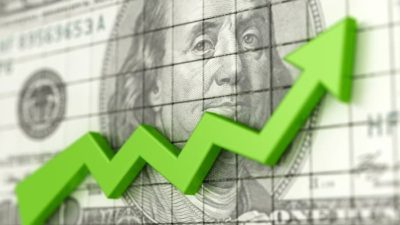The iShares S&P 500 ETF (ASX: IVV) is one of the most popular exchange-traded funds (ETFs) on the ASX, and it's not hard to see why.
This ETF gives ASX investors some of the cheapest and easiest access to the world's most-tracked index – the S&P 500 Index (SP: .INX).
An S&P 500 index fund like IVV contains the largest 500 stocks on the American markets. As such, ASX investors can easily buy this ETF and have quality US stocks like Netflix, PayPal, Mastercard and Berkshire Hathaway in their portfolios, albeit indirectly.
Today, let's discuss three reasons why you might wish to consider buying the iShares S&P 500 ETF and two reasons why you might want to think twice.
Three reasons to buy the iShares S&P 500 ETF
The S&P 500 houses some of the best companies in the world
The ASX is great and includes many quality companies. But the likes of Commonwealth Bank of Australia (ASX: CBA), Woolworths Group Ltd (ASX: WOW) and Telstra Group Ltd (ASX: TLS) simply can't compete with the best that the American markets have to offer when it comes to scale and world domination.
Just think how pervasive the products and services of companies like Coca-Cola, Colgate-Palmolive, Visa, Nike, and Adobe are worldwide.
American stocks dominate the global economy and are present in the daily lives of many, if not most, people on the planet. This, I think, is a great reason to include the iShares S&P 500 ETF in any ASX portfolio.
IVV is Warren Buffett-endorsed
Investing in an S&P 500 index fund like the ASX's IVV has been endorsed by none other than the legendary investor Warren Buffett. Yep, Buffett has repeatedly sung the praises of investing in the S&P 500, calling it a 'slice of America'. He has even dictated that most of his wealth will go to an S&P 500 index fund upon his (hopefully very distant) demise.
In fact, Buffett has even gone as far as to say this:
a virtually cost-free investment in an unmanaged S&P 500 index fund – would, over time, deliver better results than those achieved by most investment professionals, however well-regarded and incentivized those 'helpers' may be.
If Buffett is advocating this index fund, who are any of us to argue?
Diversification
To reiterate a previous point, the ASX is a great place to invest. However, many expert investors will tell you that adding geographic and currency diversification to an ASX-dominated share portfolio can only be a good thing.
Issues that only affect Australia, our dollar or our economy can have a huge impact on all shares on the ASX but leave other investments around the world unaffected. For this reason, it can be prudent to spread your wealth to another market and into assets that aren't directly priced in Australian dollars.
The IVV ETF is a prime candidate, considering its inherent ease of access, popularity and calibre of companies.
Two reasons to avoid the iShares S&P 500 ETF
So we've established that there are many good reasons to invest in an S&P 500 index fund. But here are two reasons why you might not be so keen.
This index fund is top-heavy with tech
Over the past decade, the major American tech companies, such as Apple, Microsoft, NVIDIA, Tesla, and Alphabet, have ballooned in size.
But thanks to this rise, the 'magnificent seven' US tech titans now dominate the S&P 500, and thus an investment in it. Although the S&P 500 has 500 individual holdings, Apple, Microsoft, Nvidia, Alphabet, Amazon, Meta Platforms and Tesla account for a staggering 30.88% of the IVV ETF's current portfolio, which is a bit of a historic aberration.
Some investors might be fine with this. But if you already own shares of these stocks or any other US-based ETF, you might risk overexposure to these companies with an ASX IVV investment.
Where's the dividend income?
Another reason ASX investors might not want to make the iShares S&P 500 ETF a major portfolio holding is its lack of dividend firepower.
ASX shares are well-known for their dividend prowess. All ten of the ASX 200's largest shares pay out consistent dividends, many with gusto. As such, an ASX index fund will typically get you a dividend yield of between 3-5%.
But not so with the iShares S&P 500 ETF. Unlike Australia, the American markets don't have a culture of prioritising dividend payments to shareholders. As such, most top US shares don't have large dividend yields, and many, including Berkshire Hathaway and Amazon, don't even pay dividends at all.
Alphabet and Meta Platforms have only started paying out a dividend in the past 12 months, despite years of having the financial firepower to do so.
Of course, the IVV ETF has made up for this in the past by delivering more capital growth than an ASX-based index fund. But even so, some investors who love a good dividend might not find the ASX's IVV to their liking.
Right now, the iShares S&P 500 ETF trades on a trailing yield of 1.1%. Enough said.








